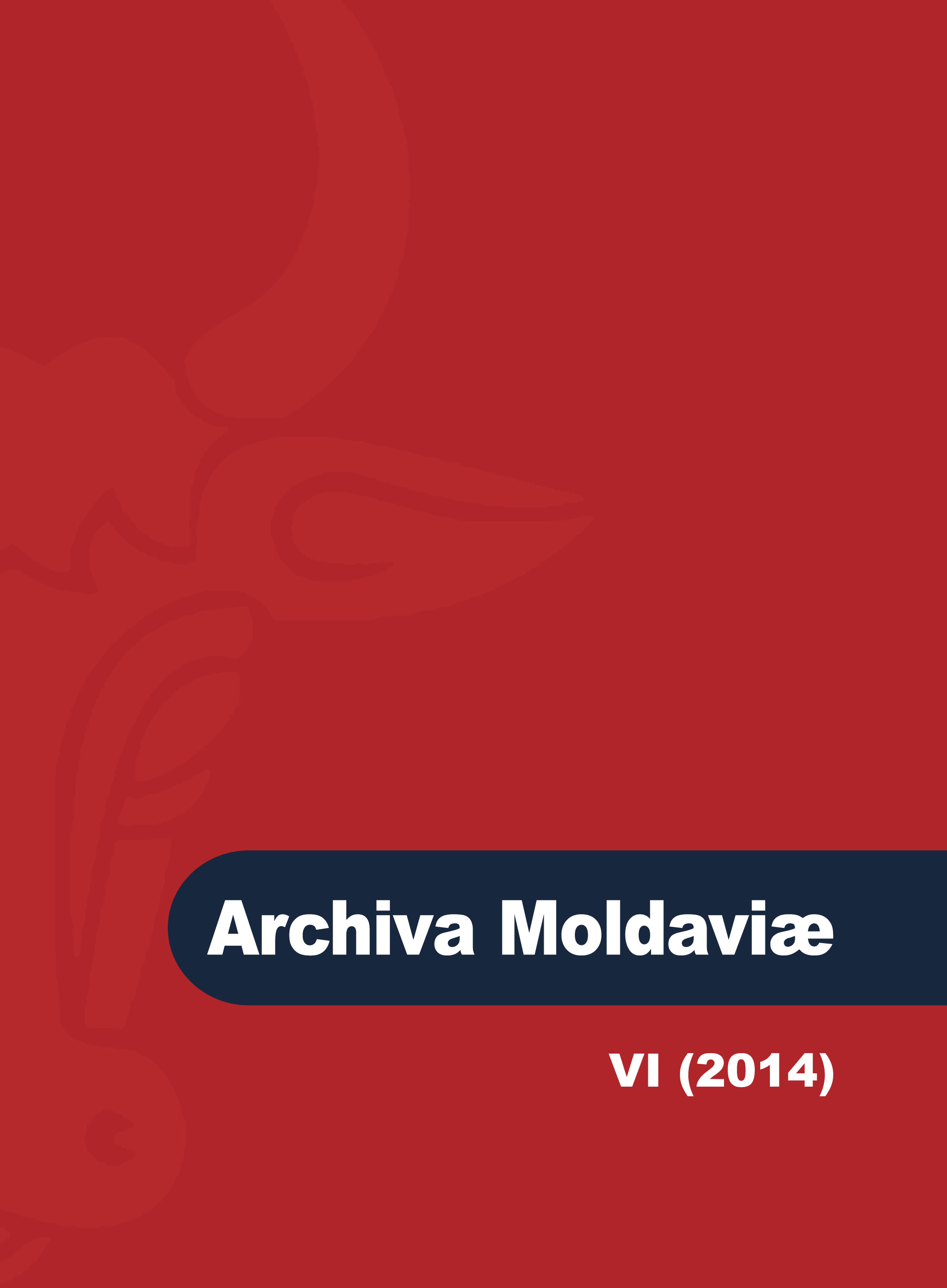Lansarea revistei „Archiva Moldaviae”, vol. II/2010, III/2011, IV/2012 şi dezbaterea Istoria regională astăzi
The Launching of the “Archiva Moldaviae” Journal and the Debate Regional History Today
Contributor(s): Dorin Dobrincu (Editor)Subject(s): History
Published by: Societatea de Studii Istorice din România
Keywords: journal “Archiva Moldaviae”; Moldavia, Europe; Central and Eastern Europe; regional history; history across boundaries; history-memory dynamic.
Summary/Abstract: The Romanian Society for Historical Studies (or SSIR) organized on April 11, 2014, in Iaşi, the formal launching of the “Archiva Moldaviae” journal, vols. II/2010, III/2011, and IV/2012. It also organized a conference meeting titled Regional History Today. The following scholars have participated at the event: Marius Balan, Sorin Bocancea, Liviu Brătescu, Mihai Chiper, Mihai Cojocariu, Victor Cojocaru, Dorin Dobrincu, Florea Ioncioaia, Bogdan Maleon, Andi Mihalache, Sergiu Musteaţă, Liviu Pilat, and Leonidas Rados. Professional researchers, as well as doctoral and masters students interested in history, and particularly in regional history, were among the public attending the event. During the first part of the conference, dedicated to the release of the journal’s last volumes, the chief ideas constituting the foundation of this scholarly project, its goals and research themes, were restated. The journal’s last three volumes were presented to the public. These volumes contain the works of 70 scholars from universities, research institutes, archives, or independent scholars, in Romania, Republic of Moldova, France, Austria, Germany, Poland, the United Kingdom, and the United States of America. The meeting’s second part was dedicated to discussing the significance of regional history, in keeping with the journal’s ethos. The participants’ views revealed the diversity of opinion regarding the concept of regional history, in terms of both connecting with local, regional, and national intellectual traditions, but also with transnational intellectual traditions, especially those of East-Central and Western Europe. The participants also underscored the ambiguity of the term “regional history”, pointing out its close relationship with, as well as differences from, local history. At the same time, it was emphasized that this kind of historiographical approach depends, as other approaches do, on the kind of writing and the manner in which the final product is “delivered” onto the marketplace of ideas. This type of research can either close itself up, being unable to transcend its local matrix, or it can strive to become relevant for others and search for ties with other geographical and cultural spaces, thus fostering a comparative approach. According to some voices, regional studies need not have only (or even primarily) an academic goal, but also that of sustaining a place’s memory. Be it as it may, one of the important epistemological gains brought on by a regional history approach is the chance to demonstrate the local causes of wider social, economic, and cultural trends or movements. Even though many regional identities have faded away over the last two centuries in Europe – sometimes due to deliberate politics, other times thanks to ideological reasons tied to nation-building efforts – they have not totally disappeared. The Romanian example, in particular the case of Moldavia, was highlighted and illustrated with concrete examples. Finally, the participants noted the close connection existing between the interest for regional and local history and the revitalization of regional and local communities. Knowing a place’s history can reawaken an interest for projects of common purpose, can restart local and regional solidarities, and can strengthen loyalties to such places.
Journal: Archiva Moldaviae
- Issue Year: VI/2014
- Issue No: 6
- Page Range: 499-536
- Page Count: 38
- Language: Romanian

